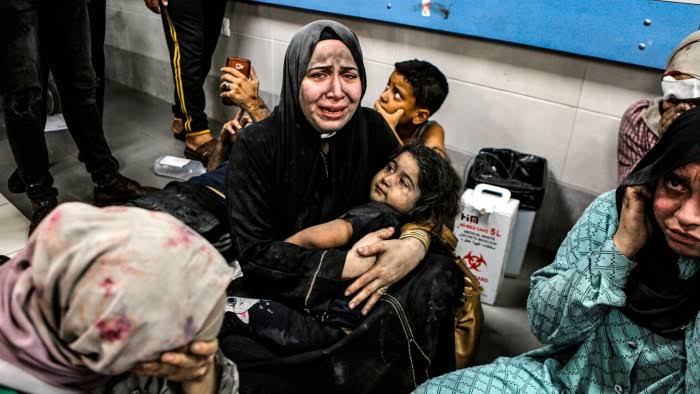
In a significant breakthrough, Qatar announced on Wednesday that Israel and Hamas have agreed to a ceasefire in Gaza, set to begin on Sunday, alongside a phased exchange of hostages and prisoners.
This tentative deal offers a glimmer of hope to a region devastated by 15 months of relentless violence that has left over 38,000 Palestinians dead, including more than 15,000 children, and displaced the majority of Gaza’s 2.3 million residents.
Entire neighborhoods have been reduced to rubble, with nearly 90% of schools damaged or destroyed, disrupting education for over 625,000 students, while thousands of mosques, churches, homes, and cultural landmarks have been obliterated.
Less than half of Gaza’s hospitals remain operational, exacerbating a humanitarian crisis marked by acute shortages of food, water, and medical supplies.
Qatar’s Prime Minister, Sheikh Mohammed bin Abdulrahman Al-Thani, confirmed the agreement, stating that it aims to pave the way for a permanent ceasefire.
The deal includes the release of dozens of hostages held by Hamas and hundreds of Palestinian prisoners in Israeli custody. It also promises to allow displaced Gaza residents to return to their homes and facilitate the flow of critical humanitarian aid into the war-torn region.
The negotiations, mediated by Qatar, Egypt, and the United States, took weeks of intense diplomacy. However, the success of the agreement hinges on both parties acting in good faith, with mediators emphasizing the fragile nature of this arrangement.
Global leaders, including U.S. President Joe Biden and Vice President Kamala Harris, expressed cautious optimism, noting that this agreement could represent a step toward a two-state solution.
Countries like India, Saudi Arabia, and Turkey also called for sustained peace and the urgent delivery of humanitarian aid to Gaza
Despite the ceasefire announcement, Israeli airstrikes on Wednesday reportedly killed 32 people in Gaza, including children, destroying residential buildings and critical infrastructure, highlighting the precariousness of the truce.
Hamas did not retaliate, but many Gaza residents remain skeptical, having endured repeated cycles of violence and failed agreements.
While some residents celebrated the prospect of peace, others mourned the irreparable loss of loved ones, homes, and livelihoods.
The profound human toll, including widespread destruction of schools, mosques, and hospitals, underscores the immense challenges of rebuilding and achieving lasting stability in the region.




